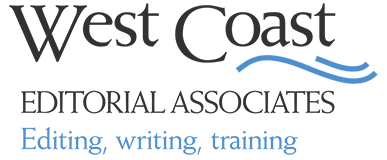We can deliver any of our workshops virtually or in person, and we can customize them for your organization or deliver them off-the-shelf.
If you don’t see the type or length of workshop you’re looking for, please ask. We’re always developing new workshops to meet our clients’ needs.
Plain Language at Work: Tips for Clear Writing
Our most popular offering for workplace writers, this foundational workshop covers plain language techniques to make it easier for your readers to find, understand, and use the information in your documents. Following the ISO plain language standard, an evidence-based set of principles and guidelines, this workshop will help you define your writing purpose, identify your intended readers’ needs, choose relevant content, make it easier for readers to find information, write with respect for your readers, be clear and concise, and evaluate if readers can use your documents as intended. Note: The former version of this workshop was called Getting the Message Across.
Length: 4 hours (can be split across 2 days)
Writing with Respect
This workshop will help you think critically about language to create documents that are appropriate for your context and reader. Starting with an understanding of bias and how and why some words limit and harm audiences, you’ll learn how and why conscious language makes a difference. We’ll consider what assumptions you might be making about your readers, how content and context affect language, and how to make mindful choices about the words you use—including when to keep language neutral and when to champion equity, diversity, and inclusion. Note: This workshop builds on, but does not duplicate, the content in our Plain Language at Work workshop.
Length: 1½ hours
Finding the Right Tone
This workshop will help you recognize how context, document structure, voice, word choice, sentence patterns, and design affect the way a document makes readers feel. You will learn how to adjust the tone of your documents to improve communication, save time, and build trust with clients, co-workers, and other key audiences. Note: This workshop builds on, but does not duplicate, the content in our Plain Language at Work workshop.
Length: 2 hours
Writing Effective Briefing Notes
This workshop will help you create or edit briefing notes to make them as effective as possible. We discuss the writing process, reader-centred writing, and clear writing in the context of briefing notes, and take a close look at the purpose and elements of effective briefing notes, focusing on decision notes and information notes. Using materials from your organization, you will analyze several briefing notes to identify the dos and don’ts of these documents. Note: This workshop builds on, but does not duplicate, the content in our Plain Language at Work workshop.
Length: 4 hours (can be split across 2 days)
Writing Effective Emails
Virtually everyone writes emails, and effective ones save time, money, and confusion by getting to the point and making the next steps clear. This workshop covers when to use email (and when not to), what to include (and what not to), how to write strong subject lines and highlight your key messages, and how to be less wordy. You will briefly consider the role of tone as well as how to handle attachments, graphics, and several calls to action. Note: This workshop builds on, but does not duplicate, the content in our Plain Language at Work workshop.
Length: 3 or 4 hours (can be split across 2 days)
“Is This Readable?” How to Make Sure Readers Can Use the Documents You Write
Plain language research shows that readability formulas and grade levels are invalid ways to judge if a document is readable. This workshop covers what readability means and presents current best practices for evaluating and testing if readers can understand and use documents as intended.
Length: 1½ hours
Principles of Copy Editing for Workplace Writers
If you’re a workplace writer who finds yourself editing other people’s writing, this workshop is for you. We discuss what copy editing is and isn’t, an efficient copy editing process, tips for onscreen editing, the use of style guides and other reference materials, and effective querying. The workshop ends with tips on common mechanical and language issues to look out for.
Length: 3 hours
Principles of Proofreading for Workplace Writers
This workshop shows you how to proofread and polish your, or other people’s, writing effectively so readers can focus on the message, not the mistakes. We cover practical tips and tools to help you find and fix errors that can lead to misunderstandings, embarrassment, and other unintended consequences.
Length: 2 hours
Workshops for Workplace Writers
- Plain Language at Work: Tips for Clear Writing
- Writing with Respect
- Finding the Right Tone
- Writing Effective Briefing Notes
- Writing Effective Emails
- “Is This Readable?” How to Make Sure Readers Can Use the Documents You Write
- Principles of Copy Editing for Workplace Writers
- Principles of Proofreading for Workplace Writers
Workshops for Editorial Professionals
- Introduction to Editing
- Structural Editing
- Principles of Copy Editing
- Practical Proofreading
- The Art of the Query
- Style Sheets with Substance
- Editing Cake and Proofreading Compote: A Recipe for Successful Cookbook Editing
- Starting a Freelance Editing Business
- Do the Work You Want (and Earn More Doing It): A Guided Strategic Retreat for Editors
